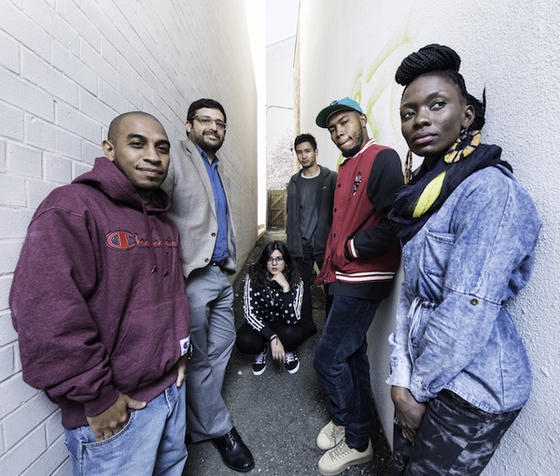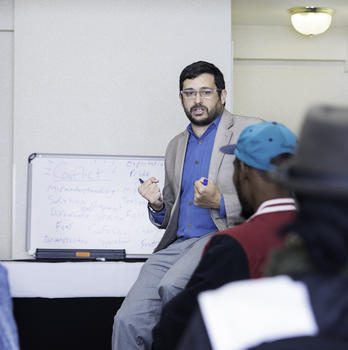As hip-hop celebrates its 50th anniversary, many people are focusing on the artists and discussing how the art form has influenced culture, but few know about its role in conflict resolution and diplomacy.

In the late 2010s, George Mason University professor Arthur Romano was working with a program called Next Level, which teaches “hip-hop diplomacy” and is sponsored by the Department of State’s Bureau of Educational and Cultural Affairs.
The program is intended to develop “programming to engage young people and effectively convey conflict resolution strategies through hip hop and urban arts,” according to its website.
In 2016, Romano, who teaches in Mason’s Carter School of Peace and Conflict Resolution, conducted one of these workshops in Northern Virginia, which brought together hip-hop DJs, MCs, beatmakers, and dancers from conflict zones around the world, including Uganda, El Salvador, Tanzania, Thailand, and Honduras.
The idea, Romano said, was to build on the participants’ creativity and leadership to change attitudes at home and amplify the voices of young people. They were selected because of their leadership skills and their desire to make a change through their music.
During their session, the artists were challenged to employ critical thinking about theories of conflict, inequality, and “how power functions, and how to shift those dynamics,” said Romano.

The last workshop Romano conducted was in Mongolia in 2019, but the Next Level program continues to this day.
Romano said that he believes hip-hop resonated for these peacebuilding activities because of its origin.
“I think hip-hop from its inception shaped the lives of Black and Brown people in the U.S.,” said Romano, who has been teaching about peace and social justice-related themes with artists and musicians for more than 20 years. “And it has resonated with people all over the country and eventually all over the world.”
Romano also said that the arts allow people to reflect on their inner emotional lives, which can help when dealing with what he calls destructive emotions, as well as healing from trauma.
Romano believes the arts play a critical role in peacebuilding. In his recent book Racial Justice and Nonviolence Education (Routledge, 2022) he wrote about how community educators in some of the United States’ most violence-affected cities use the arts.
“The arts provide an effective and creative way to make meaning about conflict and violence in one’s life and to envision a nonviolent society,” he said. “The arts can help participants take familiar aspects of their everyday lives and see them in new ways.”
Related News
- January 21, 2026
- December 2, 2025
- September 9, 2025
- August 21, 2025
- August 21, 2025
